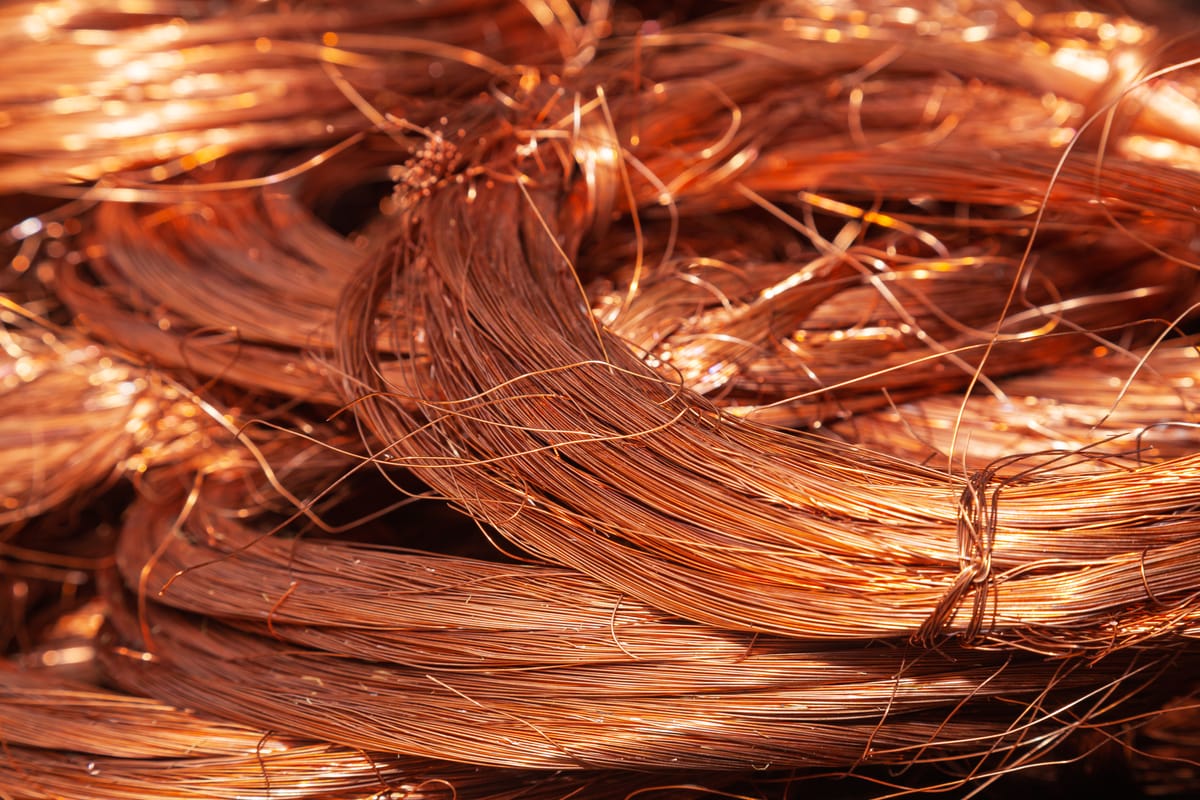China Passing Russian Copper as Scrap to Skirt Sanctions

The Lede: On Monday, Reuters reported that Chinese firms have been disguising copper from a Russian producer as scrap to skirt taxes and Western sanctions as the United States and its allies continue to press Beijing on its ties to Moscow, a major topic in recent high-level meetings between the two superpowers.
What We Know:
- Sources told Reuters that copper wire rod from the Russian Copper Company (RCC) was shredded in China's Xinjiang province by an intermediary to make it difficult to distinguish from scrap and making it possible to arbitrage the different tariffs applied to scrap and new metal.
- Aside from tariff advantages, Chinese manufacturers aim to avoid losing export business with U.S. and Western customers on the basis of their dealings with Russian firms. Processing new copper in a scrap-like fashion makes the metal harder to identify and trace. U.S. dollar payments for international trade settlements can also be an obstacle for Chinese businesses engaging in trade with Russia.
- Chinese customs data reflected a sharp increase in the import of copper scrap—approximately 6,607 tons—from Russia since December while Russian data did not show a significant increase in copper scrap exports to China with its figure at about 73 tons. Meanwhile, Russian data also showed a sudden increase in copper wire rod exports in the same time period.
The Background: Since the start of the Russia-Ukraine War, China has become a leading export destination for Russian companies after the U.S. and broader Western nations imposed sanctions on Moscow. The United States and EU have expanded their sanctions regimes to encompass Chinese companies tied to supporting Russia’s war capabilities in Ukraine. In December, Russia's export duty on copper rod was 7% compared to the 10% export duty on scrap. On the Chinese side, imports of copper rod are taxed at 4%, while the country imposes no duties on Russian scrap imports. Manufacturers coil new, high-purity copper produced in thin rods used primarily for making power cables for transportation purposes. Copper scrap is cut into small pieces or coiled and pressed.
Likely Outcomes:
- This kind of activity makes Chinese companies importing copper or using imported copper ripe for U.S. and Western scrutiny and possible sanctions. However, as demonstrated in the case of Russian crude oil being "laundered" by China and other countries selling Russian oil on the open market, including to Western customers, tracing commodities is difficult. There will be significant obstacles in any effort to establish clean supply chains. Recently, Western automotive companies were accused of sourcing aluminum produced with forced labor in Xinjiang.
- As difficult as commodities are to identify as having been passed through undesirable practices in the eyes of Western countries, finished products produced in China such as solar panels produced in Xinjiang appear to be similarly hard to regulate. The U.S. and Western countries would have to massively step up measures to cut China out of supply chains, virtually completely to absolve themselves of the myriad practices and ties that China has adopted to maneuver around Western trade barriers and regulations. That would be a rather unrealistic proposition. The U.S. and Western countries will likely focus on critical areas such as technology to put any meaningful pressure on China, while nominally tackling other industries such as copper or aluminium with observational measures that do not end up amounting to significant changes to supply chains.
Quotables:
“The liquidity of Russian metals in European and American markets may further decline, and global trade flows will also be reshaped.” - Wang Rong, senior analyst at Guotai Junan Futures
"We've been clear with China that we see Russia as gaining support from goods that China, Chinese firms are supplying to Russia. Neither of us want this to be an issue with our bilateral relationship. So we're working together." - Janet Yellen, U.S. Secretary of the Treasury
Good Reads:
Exclusive: Russia and China trade new copper disguised as scrap to skirt taxes, sanctions (Reuters)
‘Significant consequences’ if Chinese firms help Russia’s war in Ukraine, US’s Yellen warns (POLITICO)
Shanghai is the sole commodities bourse to stay open to Russian aluminium, copper and nickel as sanctions drive Moscow towards China (South China Morning Post)
